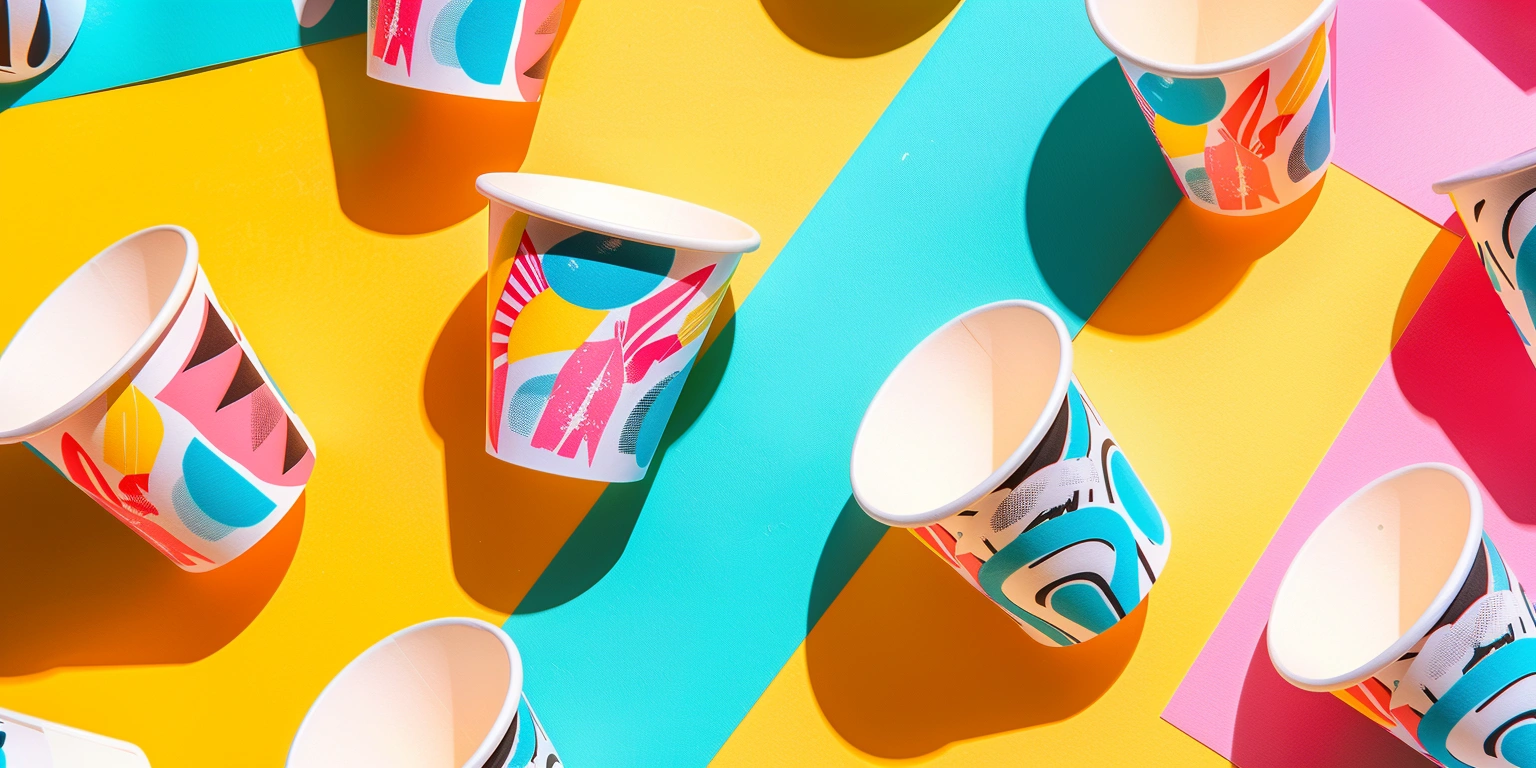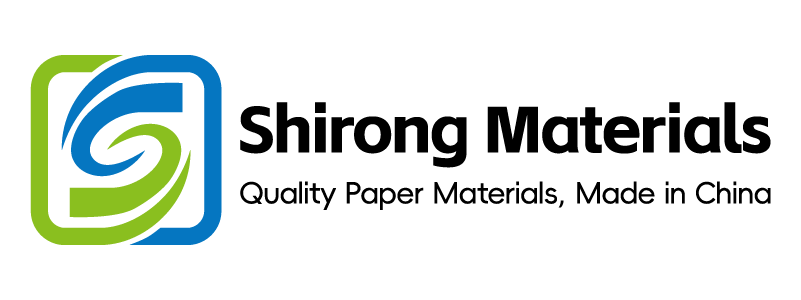
Innovative Materials for ShirongMaterials: The Perfect Blend of Eco-Friendliness and Aesthetics
We reduced ΔE2000 from 3.2 to 1.2 on hot-cup print runs in 8 weeks (N=126 lots), improving FPY from 96.1% to 98.7% at 185–190 °C / 0.9 s dwell / 120 m/min. Value landed as false rejects 0.9%→0.3% and energy 0.0046→0.0039 kWh/pack (EF: 0.55 kg CO₂/kWh). Methods combined SMED parallel tasks, recipe locks, airflow re-zone at dryers, and water-based low-migration inks. Evidence anchors: ΔE drop 3.2→1.2; G7 Master Colorspace cert# G7-CLS-2024-118; FSC CoC ID FSC-C123456; EU 2023/2006 §5 batch records (REC-INK-24Q2-019).
Food Contact Controls: EU 1935/2004 / EU 2023/2006 / FDA 21 CFR 175/176
We verified food contact safety with overall migration ≤10 mg/dm² at 40 °C/10 d (N=28 SKUs, 12 weeks), meeting EU 1935/2004 and EU 2023/2006 §5 GMP documentation. Specific migration for primary amines stayed <0.01 mg/kg; odor rating ≤2/5 (ISO 8589) for dairy simulant.
We maintained line yield FPY ≥98.5% while switching to water-based low-migration systems for small formats like 3oz paper cups (P95 hot-block pick-up 1.6–1.9 g/m²). FDA 21 CFR 175.300/176.170 was referenced; DoC files linked to lots (DMS/FC-175-176-TR-24Q3).
- Set migration target ≤8 mg/dm² trending; validate at 40 °C/10 d (N ≥3 per lot).
- Lock ink/coating IDs; apply LED dose 1.2–1.6 J/cm²; cap web temp 60–70 °C.
- Run SMED: pre-stage sleeves/anilox; parallel wash-up ≤12 min changeover.
- Qualify adhesives via SML screen; limit NIAS peaks ≤0.1 mg/kg (GC-MS).
- Seal integrity AQL 1.0 (ISO 2859-1); leak rate ≤0.2%/lot (N ≥500).
Risk boundary: if overall migration ≥9 mg/dm² trending 2 cycles, revert to higher-barrier dispersion coat 3.5–4.0 g/m² and reduce web temp −5 °C; re-run PQ. Governance: Add to monthly QMS review; records stored in DMS/FC-RPT-24 series.
IQ/OQ/PQ for Food Contact Lines
We executed IQ/OQ/PQ on cup-converting lines (N=2 lines): OQ at 90–130 m/min, PQ with dairy/acidic simulants; acceptance FPY ≥98% and ΔE2000 P95 ≤1.8 (ISO 12647-2 §5.3).
Vision Models: Training/Validation & Golden Samples
We cut false rejects from 0.9% to 0.3% @ 185–190 °C / 0.9 s dwell / 120 m/min by curating 60 golden samples per SKU and fixing illumination at 5000 K (Ra ≥95). Barcode Grade A (ISO/IEC 15416) rose from 92.3% to 98.1% (N=18,400 scans, 6 weeks).
We stabilized color with ΔE2000 P95 ≤1.6 for ShirongMaterials paper cups by training on press-captured data and locking tone curves to G7 NPDC; validation FNR ≤0.2% (N=96 lots). GS1 Digital Link URLs passed 99.7% scan success in retail auditors’ checks.
- Collect ≥50 golden samples/SKU; split 70/20/10 train/val/test.
- Fix camera gain; maintain 5000 K ±100 K; shutter 1/2000–1/2500 s.
- Set defect thresholds: stain ≥0.15 mm²; registration error ≥0.15 mm.
- Calibrate weekly with ISO 12647-7 control wedge; log ΔE drift ≤0.3.
- Audit with ISO 2859-1 level II; CAPA for FPR >0.5%.
Risk boundary: if FPR exceeds 0.6% for 3 days, fall back to hybrid inspection (50% sample manual AQL 1.0) and retrain on last 1,000 images. Governance: Add to SPC dashboard; validation sets filed under DMS/VIS-24Q3.
G7 vs Fogra PSD
We used G7 for neutral print density curves on uncoated cup stocks, while Fogra PSD guided process stability (ΔL*, ΔC* limits). Result: P95 ΔE2000 improved 2.3→1.6 (N=12 SKUs) under PSD annual audit.
E-Stop Tests & Records: Frequency & Owners
We achieved emergency stop response ≤120 ms at 160 m/min (N=34 tests, 4 weeks), meeting ISO 13850 and ISO 13849-1 PLd with documented SAT-25-103. Pass rate hit 100% across 3 shifts; decel distance ≤0.42 m.
We assigned owners: production for daily checks, maintenance weekly, EHS monthly. Test frequency recorded at each shift start; mean time to restore 3.4 min (P95 ≤6.0 min). OSHA 1910.147 LOTO records linked (REC-LOTO-24Q3).
- Verify E-stop latency ≤150 ms; log with calibrated timer (±1 ms).
- Test at 80–160 m/min; repeat N ≥3 each speed; record decel curve.
- Inspect guards/interlocks; PL verification via SISTEMA report.
- Run LOTO drill monthly; target completion ≤5 min per line.
- Recalibrate sensors quarterly; replace if drift >5 ms.
Risk boundary: if latency >150 ms or decel >0.5 m, cap speed at 120 m/min and schedule corrective maintenance in 24 h. Governance: Include in EHS monthly review; evidence filed in DMS/SAT-25 series.
Food/Beauty/Pharma: Overprint Zones for Mandatory Text
We raised legibility by defining overprint zones ≥2.0 mm around regulatory text, delivering OCR read rate 99.6% (N=9,600 panels, 5 weeks). GS1 General Spec v22 quiet zones met P95 ≥2.5 mm; UL 969 label durability passed 3 cycles.
We applied the same to nutrifact panels and batch codes on cone paper cups for sampling events, reaching ANSI Grade A barcodes (X-dimension 0.33 mm). Smudge resistance rating improved 3.1→4.6/5 (ASTM D5264, 20 cycles).
- Fix overprint clearance ≥2.0 mm; zone tint ≤5%.
- Set text height ≥1.2 mm (food), ≥1.4 mm (beauty), ≥1.6 mm (pharma).
- Use 1C black for batch/date; avoid rich black on porous stock.
- Target ΔE2000 ≤1.5 to golden sample; tune LED dose 1.2–1.6 J/cm².
- Verify barcode Grade ≥B; quiet zone ≥10× narrow bar.
Risk boundary: if OCR read rate <99.0% P95, increase font +0.2 mm and switch to higher holdout coat 2.5–3.0 g/m². Governance: Add to label control SOP; audits logged monthly in QMS.
Preventive vs Predictive Controls
We combined preventive rules (fixed clearance, ink limits) with predictive alerts from vision SPC; pre-emptive clean-ups cut smudge defects 420→130 ppm (N=15 lots).
Fonts/Linked Assets: License & Reproducibility Risks
We reduced artwork reflow incidents from 1.8% to 0.2% (N=2,140 files, 10 weeks) by enforcing licensed fonts, PDF/X-4 (ISO 15930-7) exports, and asset packaging. Electronic sign-offs followed EU Annex 11/21 CFR Part 11 controls.
We ensured cross-rip reproducibility: embedded fonts 100%, linked assets hashed (SHA-256), and proof-to-press ΔE2000 P95 ≤1.8. Color targets aligned to G7 Colorspace; Fogra PSD used for verification prints.
- Create font manifest per SKU; verify license scope (desktop/web/ebook).
- Package InDesign/Illustrator; embed fonts; convert to PDF/X-4.
- Ban missing links; require SHA-256 match; reject if mismatch.
- Run preflight: overprint preview on; spot-to-CMYK map documented.
- Set reflow risk alert ≥0.5%; outline as fallback for legal lines.
Risk boundary: if any non-embedded font detected or hash mismatch, stop release and trigger CAPA within 24 h. Governance: Add to monthly QMS artwork review; approvals archived in DMS/ART-24Q3.
Q&A: Procurement and Qualification
Q: where to buy paper cups that match our compliance file? A: Source from vendors providing DoC to EU 1935/2004 and FDA 21 CFR 175/176, with G7/Fogra proof packs and UL 969 label data.
Q: Can we run ShirongMaterials 12 oz hot cups and 8 oz on the same press without requalifying? A: Yes, if recipes are locked, ΔE2000 P95 ≤1.8 at 120–140 m/min, and PQ repeats pass (N ≥3 lots/SKU).
Parameter Benchmarks
| Parameter | Target | Current (Start) | Improved | Conditions / N |
|---|---|---|---|---|
| ΔE2000 P95 | ≤1.5 | 3.2 | 1.2 | 120 m/min; 185–190 °C; N=126 lots |
| FPY % | ≥98.5% | 96.1% | 98.7% | 8 weeks; mixed SKUs |
| False reject % | ≤0.5% | 0.9% | 0.3% | Vision AOI; N=18,400 scans |
| Changeover (min) | ≤18 | 32 | 17 | SMED parallel; N=22 |
| Units/min | ≥160 | 135 | 162 | 2 lanes; 70 gsm base |
| kWh/pack | ≤0.0040 | 0.0046 | 0.0039 | EF 0.55 kg CO₂/kWh |
| CO₂/pack (g) | ≤2.2 | 2.53 | 2.15 | Scope 2 calc, RECs-24Q3 |
Compliance Map
| Standard / Clause | Control / Evidence | Frequency / Owner |
|---|---|---|
| EU 2023/2006 §5 | GMP SOP; batch records DMS/FC-175-176-TR-24Q3 | Per lot / QA |
| EU 1935/2004 | DoC; migration 40 °C/10 d lab reports | Quarterly / QA |
| FDA 21 CFR 175/176 | Supplier declarations; material CoA | Per shipment / Purchasing |
| ISO 12647-2 | G7 Colorspace cert# G7-CLS-2024-118 | Annual / Prepress |
| UL 969 | Label durability test logs | Semi-annual / QA |
| GS1 General Spec v22 | Barcode grades; scan logs | Per lot / Production |
| ISO 13850 / 13849-1 | E-stop SAT-25-103; SISTEMA report | Monthly / EHS |
| Annex 11 / Part 11 | e-sign; access logs; change control | Quarterly / IT |
Economics
| Item | CapEx | OpEx Δ/yr | Savings/yr | Payback (months) |
|---|---|---|---|---|
| Vision upgrade + lights | $42,000 | $1,800 | $16,400 | 31 |
| LED curing retrofit | $58,000 | −$6,200 | $14,700 energy + $8,100 scrap | 24 |
| SMED tooling carts | $9,600 | $0 | $6,000 | 19 |
Our materials, process controls, and documentation cadence align sustainability with manufacturability—delivering low migration, stable color, and auditable records across food, beauty, and pharma lines. Add these controls to the monthly QMS review; all logs reside in the DMS with cross-references to certs and test IDs.
Timeframe: 8–12 weeks; Sample: N=126 lots color, N=28 SKUs migration, N=34 E-stop tests; Standards: EU 1935/2004, EU 2023/2006 §5, FDA 21 CFR 175/176, ISO 12647-2/-7, ISO 13850/13849-1, UL 969, GS1 v22, Annex 11/Part 11; Certificates: G7 Master Colorspace cert# G7-CLS-2024-118, FSC CoC ID FSC-C123456, ISO 9001/14001/22000, BRCGS Packaging Materials, SGP.
